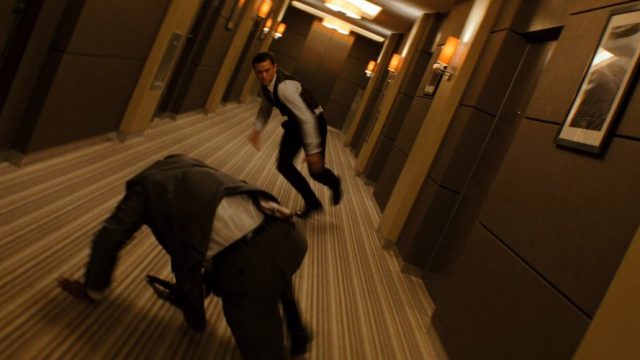Everyone likes to talk about the visuals in Inception, and there are plenty of reasons to. The costumes are amazing (everything but Elliot Page’s jeans were custom-made for the production), the visuals are stunning, and the action is compelling (that famous hallway scene combines all three beautifully). And it’s true the central themes of the movie are pretty straightforward. All the splashy special effects are in service of a message you could fit on a greeting card: don’t hold too tightly to the past, or you’ll destroy your future.
But sometimes moral simplicity is exactly what a story demands. (It’s a Wonderful Life is about caring for others, even when you can’t see the benefit. Barb and Star Go to Vista del Mar is about stepping out of your comfort zone and opening up your heart. It doesn’t always have to be that deep.)
At its core — when, if you’ll forgive me, you go deeper — Inception is about relationships. Parents — fathers in particular — and children pull the most focus, but there are circles of connection within the film. They range from the too-intimate circle of Mal and Cobb’s relationship to the trust that Ariadne and Saito gradually receive when they join the operation. Cobb goes from a man reluctant to use a single partner beyond the long-suffering Arthur to someone willing to risk eternal limbo to rescue a man he barely knows. (Saito did buy the airplane, but still. There are limits.)
Mal isn’t just a symbol of the past, or even of Cobb’s survivor’s guilt after his wife’s death. She is the predictability of a closed system, a world where you are forever waiting for a train. Outside, in the real world, children will grow up and move away. Associates might grow old or betray you. Every connection invokes the risk of loss. Cobb has to choose the possibility of pain and fight his way through his fears to the light.
Cobb has to move forward by reaching out, first to his father-in-law and former colleagues, but then to a new Architect and the man who got him into this whole mess. What pulls Cobb and Saito out of the maze in the end is their decision to connect with one another.
The Fischer family stands in stark contrast to Cobb and his crew. Robert spends his entire life in his father’s shadow and hears the man murmur “disappointed” as he dies. Their alienation gives Inception a different level of narrative weight, and a different set of stakes. Robert Fischer’s story is influenced by a lie, but the lie gives him strength to stand on his own. The connection he made is a figment of imagination, but the movie strongly suggests that he — and the world — will be better off as a result of the lie. The lie that separates and alienates kills. The lie that connects brings hope and happiness.
In the end, Inception asks if we can even trust ourselves—and the answer is that we have no other choice. Cobb takes Saito’s deal, reunites with his children, and leaves the top behind. We may not find honesty as we move forward, but perhaps there’s a deeper emotional truth out there. Cobb’s crew may be thieves and liars, but they give Robert Fischer something years of therapy might not be able to manage: a path toward a different future, one not stuck trying to chase the shadow of his father. There’s something to be said for that.
(Of course, Mal chose illusion, and it killed her. But her illusion was static, wasn’t it?)
There’s an odd undercurrent of growth even behind the scenes, with Elliot Page’s Ariadne. In recent interviews, he’s revealed that he was pushing for more masculine styling after his early roles, and Ariadne’s choices strike a delicate balance. The scarf is feminine, the suits masculine. Ariadne remains something of an enigmatic character throughout the film; she has no shared past with Mal, and she divulges little of her own history or ambitions. Mythological Ariadne helped Theseus through the labyrinth, giving him the key to slay the monster, and then he abandoned her; this Ariadne reveals no such weakness. (Oddly, there was considerable debate about her costuming at the time; New York magazine said in a frankly bizarre piece that Page “looked like a boy,” an intended insult that hasn’t aged well, while others defended Ariadne’s look as an example of a new kind of femininity. The more important thing to me is that Page looks great, and like every other character, his styling tells a story about who the character is and where they’re going to go. It’s just this time, Ariadne’s costumes indicated where her actor was headed as well.


